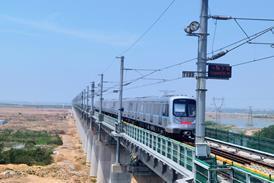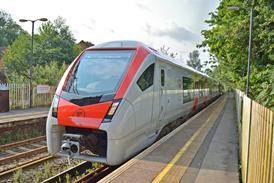A proposed tax reform in Australia threatens to wipe out interstate freight hauls below 1000 km. This comes just as private rail freight operators prepare to compete for the modest tonnages available between the five mainland state capitals. Incredibly, economists who proposed the tax change argued that it would level the playing field between road and rail.
Ignoring some exceptions, the position now is that road users pay a diesel fuel tax of 43 cents a litre and most railways pay 35ó. But off-road users pay no tax at all, because the official position - restated many times - is that this tax is for road usage. If proof of this hypothecation were needed, the heavy haul lines in Western Australia pay no fuel tax because, as an adjunct of mining operations, they are deemed to be ’off-road’!
In 1992, the National Road Transport Commission set 18ó diesel excise as an appropriate road user charge. For this reason, the proposal now before Parliament explicitly sets 18ó as the common rate for road and rail, while off-road users pay nothing. Setting aside the fact that NRTC recently set 20ó as the correct rate, it is scandalous that rail operators are forced to pay road user charges as well as track access charges, which are typically 30% of their total costs.
Giving evidence to a Senate committee on February 2, Australasian Railway Association Director John Kirk pointed out that, far from easing this manifestly unjust burden, the cut in fuel tax posed an immediate and grave threat to the viability of rail’s interstate freight. Because rail is more fuel-efficient than road, and the proposed cut in tax is greater for trucks than trains, the reduction in total costs per tonne-km will be 8% to 12% for road but only 4% to 6% for rail.
The effect is worst on short hauls. ARA’s consultants calculate that the 18ó tax ’would result in cessation of rail freight services in the Adelaide - Melbourne corridor’, and in the worst case scenario, ’this may also occur for the Sydney - Melbourne and Sydney - Brisbane corridors.’ Because rail costs are far more sensitive to volume that road’s, and service quality collapses when train frequency is slashed, tilting the cost balance by as little as 5% can have a dramatic effect on market share.




















